Deutsche Oper Berlin
The Cunning Little Vixen
Opera
Bismarckstraße 35, 10627 Berlin
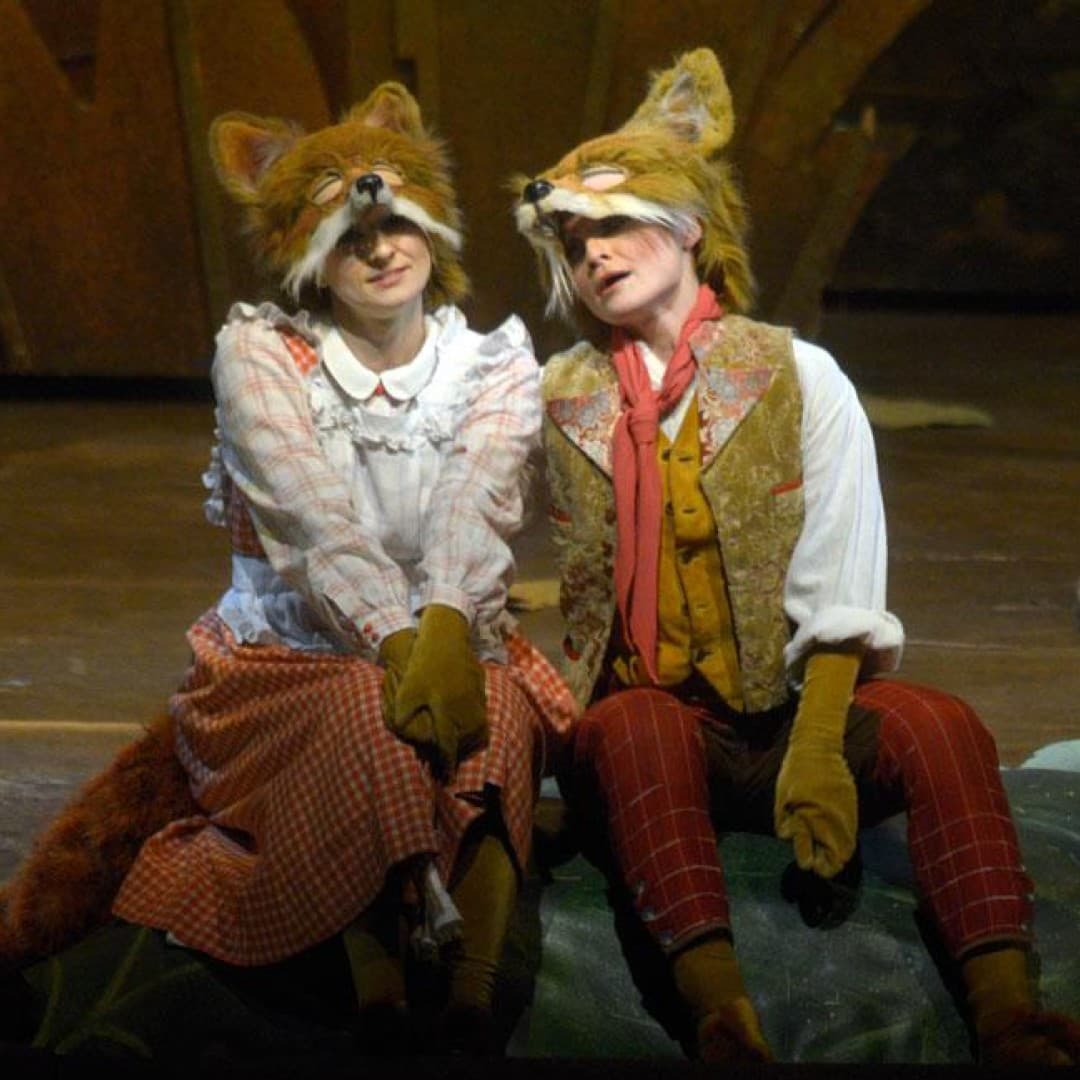
© 2012 Bettina Stöß
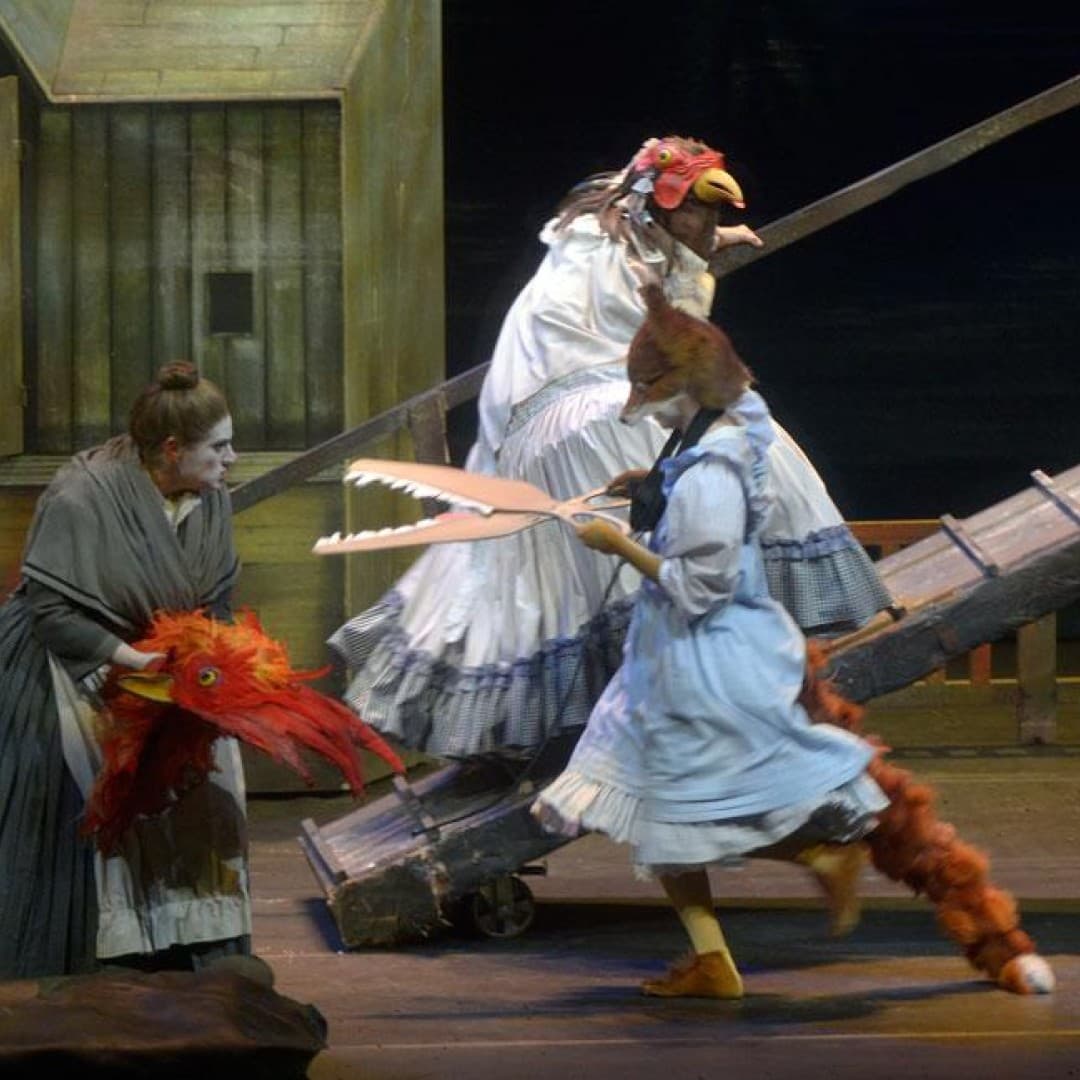
© 2012 Bettina Stöß
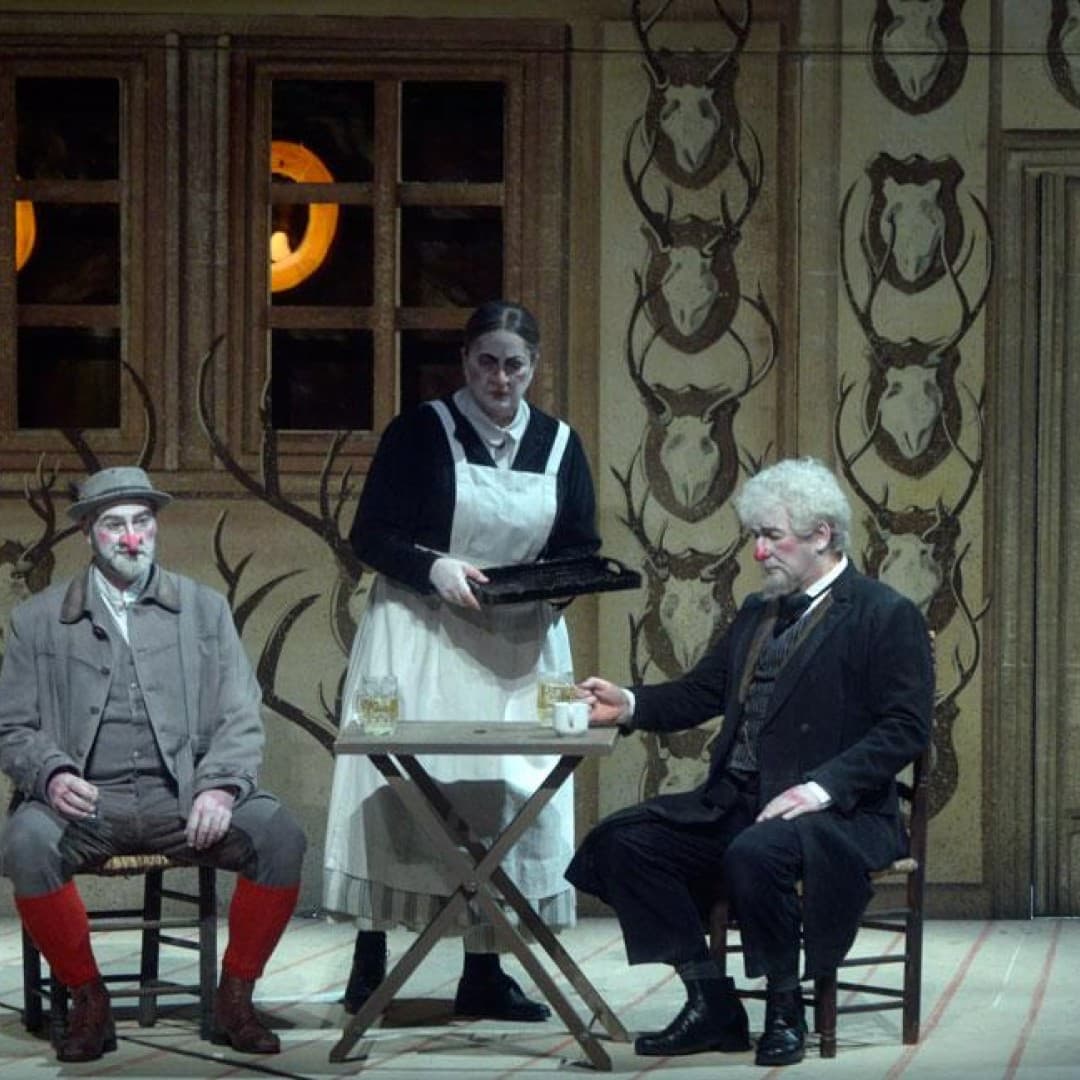
© 2012 Bettina Stöß
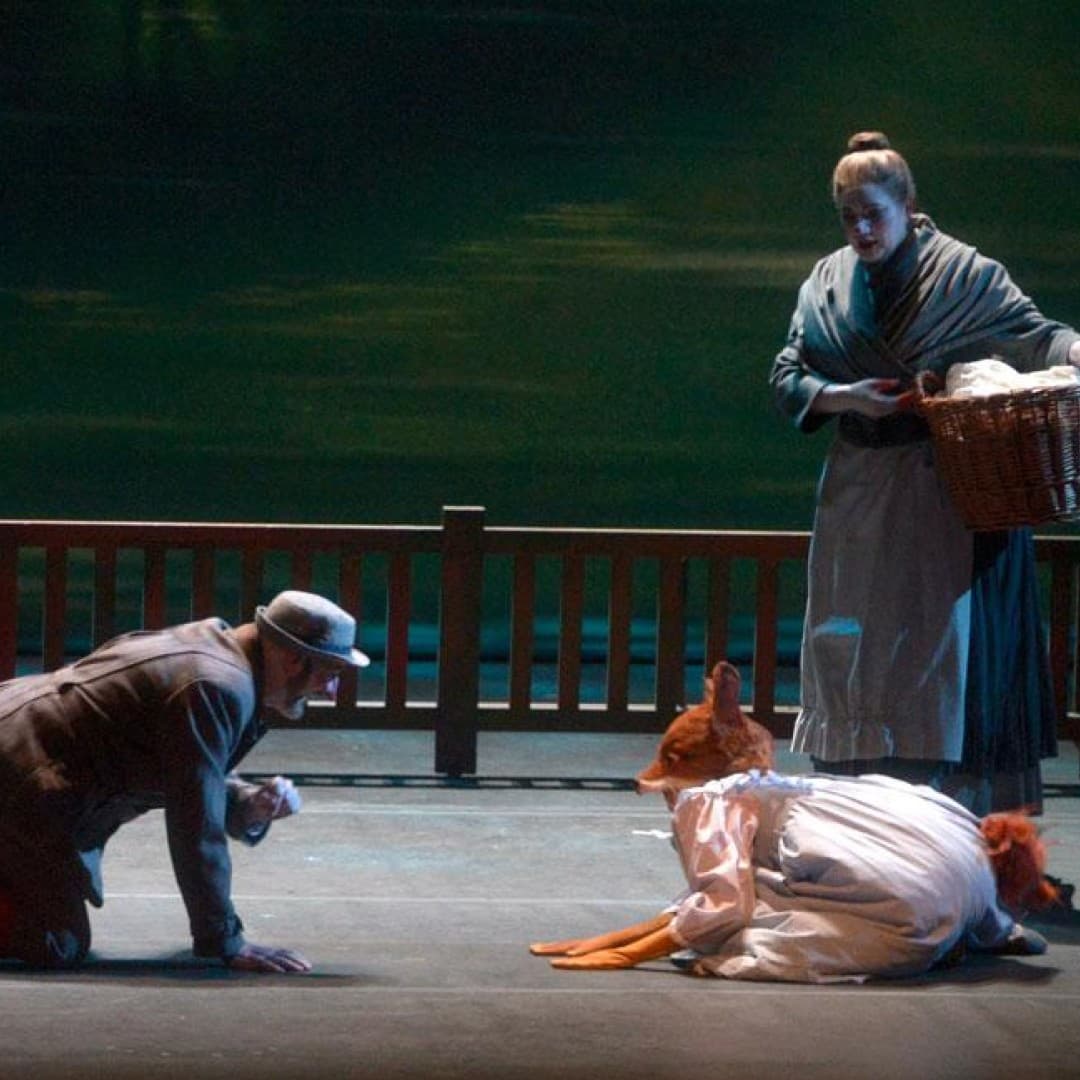
© 2012 Bettina Stöß
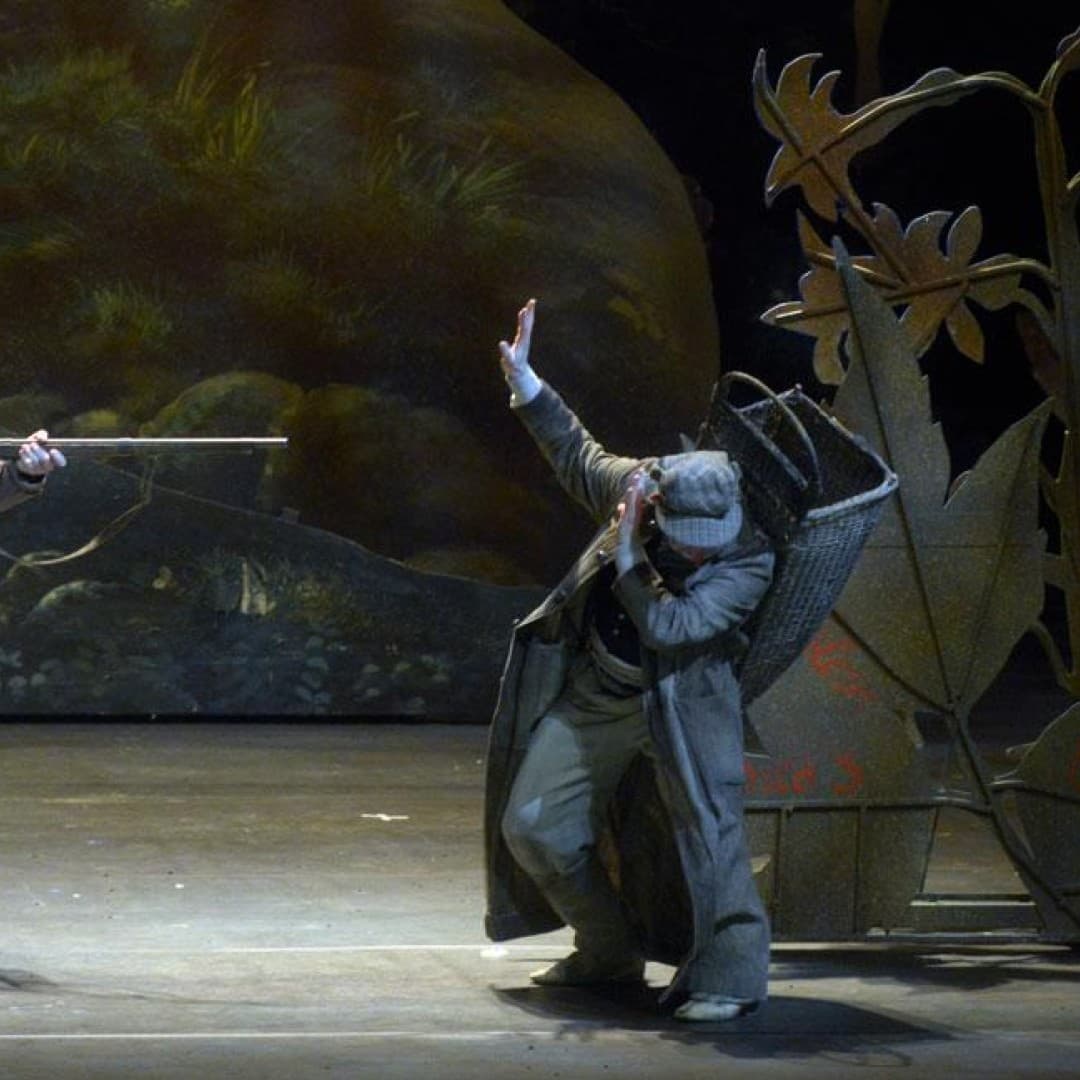
© 2012 Bettina Stöß
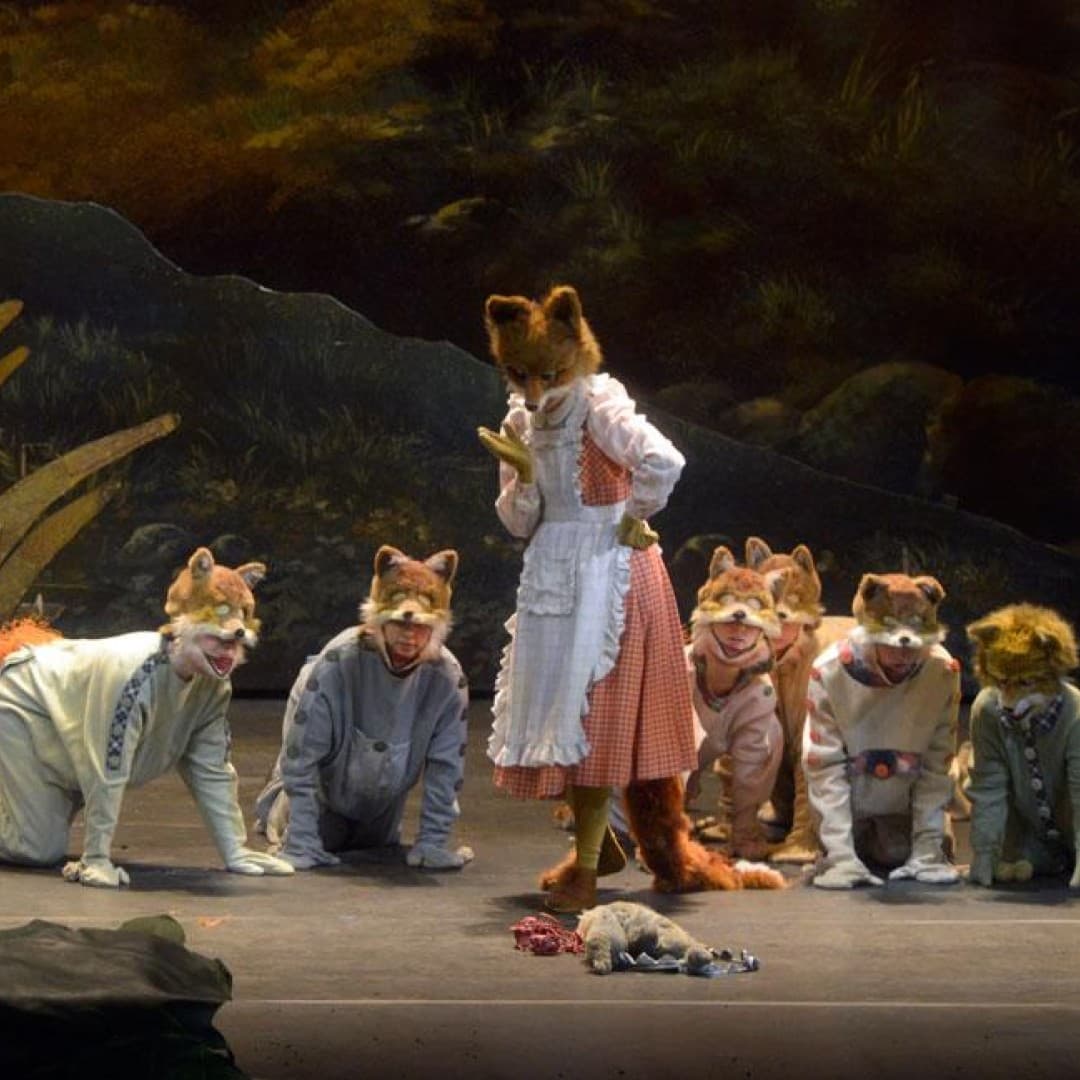
© Bettina Stöß
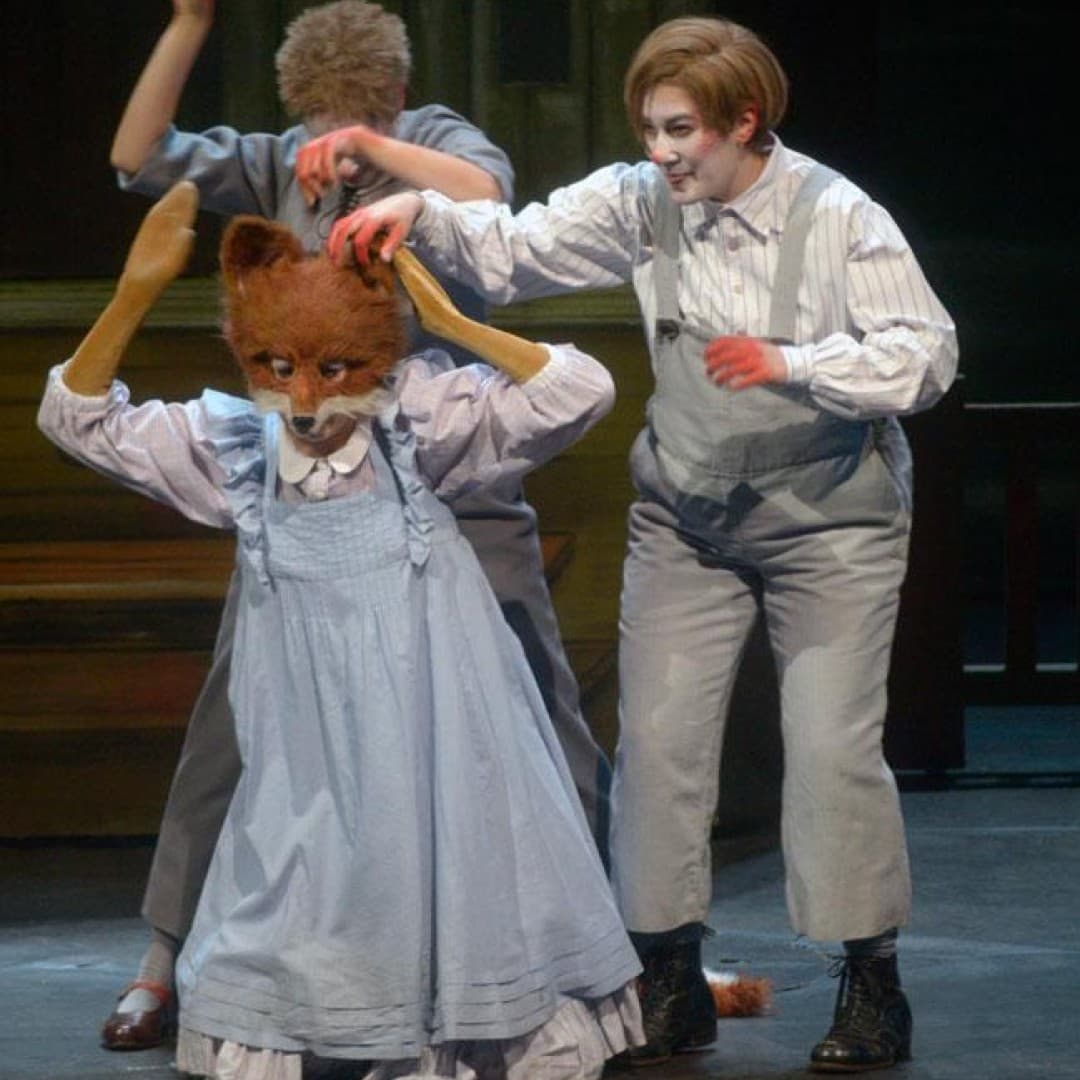
© 2012 Bettina Stöß
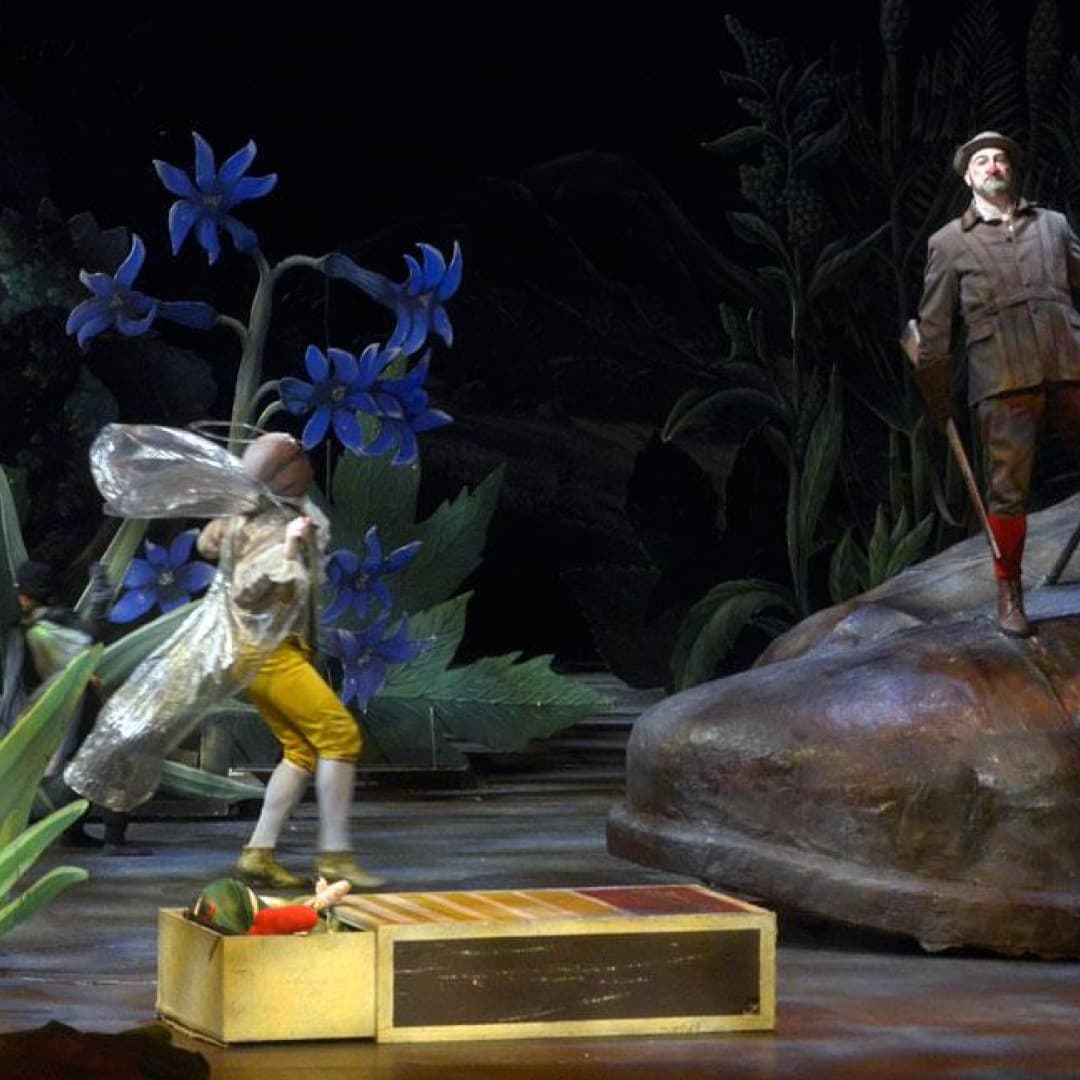
© 2012 Bettina Stöß
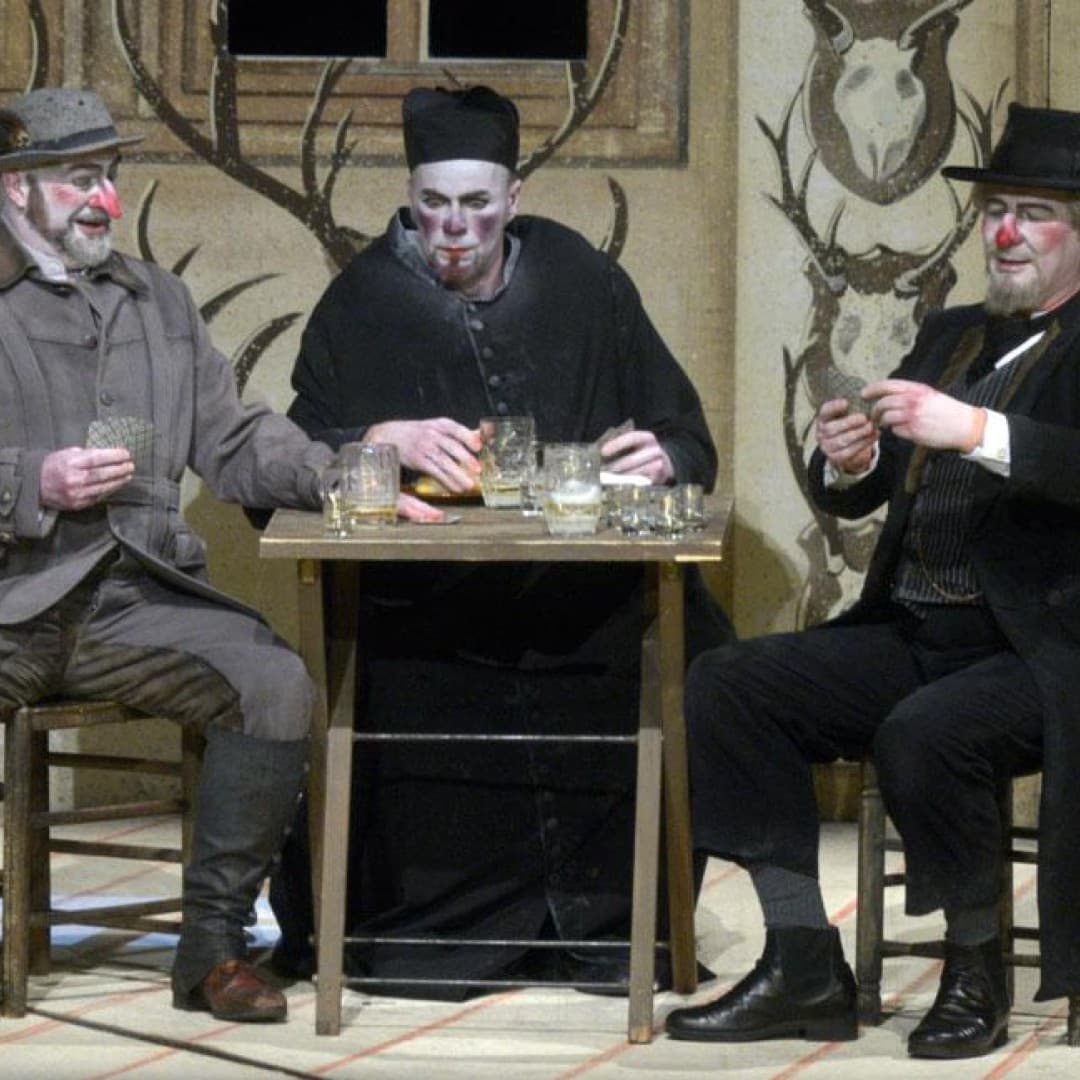
© 2012 Bettina Stöß
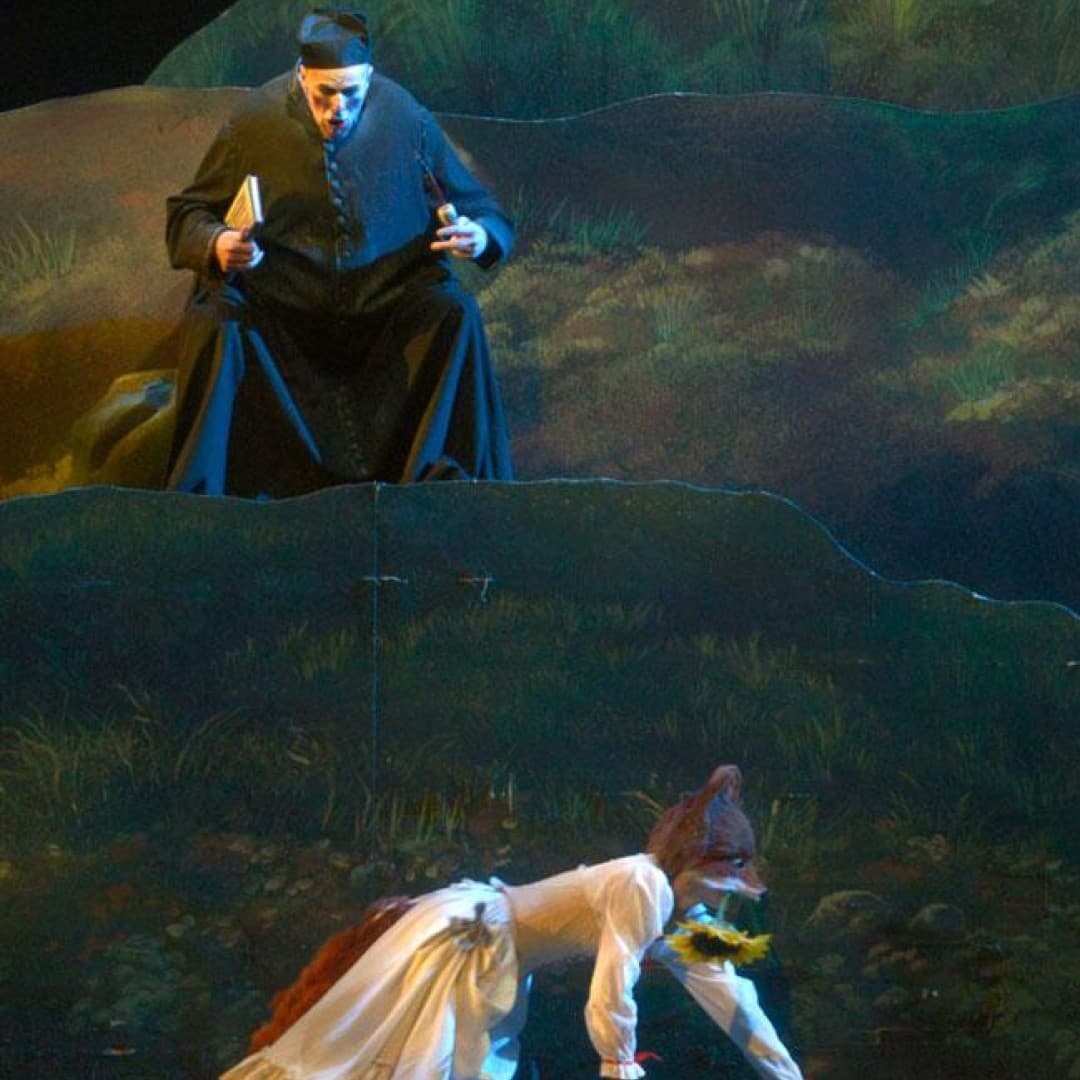
© 2012 Bettina Stöß
Description
Opera in 3 acts
Libretto by Leoš Janáček based on a novel by Rudolf Těsnohlídek
German text by Peter Brenner based on Max Brod's translation
With English surtitles
This cheerful, melancholy work about a cunning vixen is not called a "Czech Midsummer Night's Dream" for nothing. The figures of the animal and human worlds are closely interwoven here to create an allegory about the cycle of life and death. In this late work, Janáček composed an impressionistic soundscape of subtly orchestrated short scenes and episodes, orchestral preludes and transformations, and Katharina Thalbach's detailed staging emphasises the enchanting character of this work ...
The opera gives us scenes from the life of Bystrouska, a young fox. The forester, who has never lost his desire for freedom and love, catches her in the forest one day and takes her home; to him she seems the embodiment of his desire. But Bystrouska manages to escape. In the woods she drives the badger from his set. In her new home she also meets the love of her life: a charming fox courts her and the lovers spend their first night together in the den. They finally wed, surrounded by the animals of the forest. Soon we see the vixen as the proud mother of a crowd of children. But their happiness is shortlived: Bystrouska is shot by the poacher Harasta. Meanwhile the forester and schoolmaster sit in the inn lamenting the onset of old age. The forester reflects bitterly on the death of the vixen. He cannot forget her uninhibited nature, her youthfulness, her urge to be free. In the forest he is enveloped by a quaintly magical atmosphere and falls asleep. As in a vision, a young fox appears to him, the very image of his mother. Life has triumphed over mortality. The wheel has come full circle.
„I am creating the Little Fox the way the Devil catches flies – when he has nothing better to do. I wrote the Little Fox for the forest and for the sorrow of my later years.” Leos Janacek wrote. But his opera The cunning little Vixen is certainly not the melancholic retrospective of an old man who feels himself closer to death than to life. Although the composer was in his late sixties, he created a work full of comic and poetic moments. Offsetting the „sorrow of his later years” we are given a merry and melancholic fable embracing both death and the comforting knowledge that death leads on to new life. The story is taken from a serialised novel by Rudolf Tesnohlídek illustrated by Stanislav Lolek and published in the Brno daily „Lidové noviny” from 1920 onwards. The composer wrote the libretto himself and the opera was completed by January 1924. It resembles an impressionistic composition of short, subtly instrumentalised scenes and episodes that are linked by a total of nine orchestral preludes and scene changes that provide the musical and dramaturgical structure of the work. Despite his affinity for impressionism and the music of Debussy, whom he admired, Janacek's musical language remains unique. He was one of very few composers who could develop music from the melody of language. Sequences resembling leitmotifs but lacking a stringent structural urgency can be detected throughout the opera. Characteristic of this opera are also the popular, albeit never folkloric, elements within the music and its decidedly rhythmic structure, which gives an added dimension to already beguiling melodies.
Libretto by Leoš Janáček based on a novel by Rudolf Těsnohlídek
German text by Peter Brenner based on Max Brod's translation
With English surtitles
This cheerful, melancholy work about a cunning vixen is not called a "Czech Midsummer Night's Dream" for nothing. The figures of the animal and human worlds are closely interwoven here to create an allegory about the cycle of life and death. In this late work, Janáček composed an impressionistic soundscape of subtly orchestrated short scenes and episodes, orchestral preludes and transformations, and Katharina Thalbach's detailed staging emphasises the enchanting character of this work ...
The opera gives us scenes from the life of Bystrouska, a young fox. The forester, who has never lost his desire for freedom and love, catches her in the forest one day and takes her home; to him she seems the embodiment of his desire. But Bystrouska manages to escape. In the woods she drives the badger from his set. In her new home she also meets the love of her life: a charming fox courts her and the lovers spend their first night together in the den. They finally wed, surrounded by the animals of the forest. Soon we see the vixen as the proud mother of a crowd of children. But their happiness is shortlived: Bystrouska is shot by the poacher Harasta. Meanwhile the forester and schoolmaster sit in the inn lamenting the onset of old age. The forester reflects bitterly on the death of the vixen. He cannot forget her uninhibited nature, her youthfulness, her urge to be free. In the forest he is enveloped by a quaintly magical atmosphere and falls asleep. As in a vision, a young fox appears to him, the very image of his mother. Life has triumphed over mortality. The wheel has come full circle.
„I am creating the Little Fox the way the Devil catches flies – when he has nothing better to do. I wrote the Little Fox for the forest and for the sorrow of my later years.” Leos Janacek wrote. But his opera The cunning little Vixen is certainly not the melancholic retrospective of an old man who feels himself closer to death than to life. Although the composer was in his late sixties, he created a work full of comic and poetic moments. Offsetting the „sorrow of his later years” we are given a merry and melancholic fable embracing both death and the comforting knowledge that death leads on to new life. The story is taken from a serialised novel by Rudolf Tesnohlídek illustrated by Stanislav Lolek and published in the Brno daily „Lidové noviny” from 1920 onwards. The composer wrote the libretto himself and the opera was completed by January 1924. It resembles an impressionistic composition of short, subtly instrumentalised scenes and episodes that are linked by a total of nine orchestral preludes and scene changes that provide the musical and dramaturgical structure of the work. Despite his affinity for impressionism and the music of Debussy, whom he admired, Janacek's musical language remains unique. He was one of very few composers who could develop music from the melody of language. Sequences resembling leitmotifs but lacking a stringent structural urgency can be detected throughout the opera. Characteristic of this opera are also the popular, albeit never folkloric, elements within the music and its decidedly rhythmic structure, which gives an added dimension to already beguiling melodies.
Cast
Marko Letonja
conductor
Katharina Thalbach
Stage-Production
Ezio Toffolutti
Stage-design, Costume-design
Thomas Richter
Chorus-master
Chor der Deutschen Oper Berlin
Chorus
Christian Lindhorst
Children's Chorus
Darie Cardyn
Choreography
Derek Welton
Forester
Geon Kim
Forester
Stephanie Wake-Edwards
Foresters wife, Woodpecker
Sibylle Benner-Jost
Owl
Clemens Bieber
Schoolmaster and sausage dog
Andrew Harris
Priest and badger
Jared Werlein
Harasta
Jörg Schörner
Pasek
Meechot Marrero
Cunning Little Vixen
Alexandra Oomens
Cunning Little Vixen
Saskia Klumpp
Innkeeper
Nicole Hyde
Innkeeper
Arianna Manganello
Fox
Martina Baroni
Fox
Maria Vasilevskaya
Frantik, Grasshopper and Jaybird
Kristina Clemenz
Hen
Suzanne Fischer
Hen
Lilit Davtyan
Pepik, Grasshopper
Chance Jonas-O'Toole
Chanticleer, Mosquito
Kinderchor der Deutschen Oper Berlin
Foxes
Orchester der Deutschen Oper Berlin
Orchestra
Opernballett der Deutschen Oper Berlin
Dance
Dates
Deutsche Oper Berlin
Bismarckstraße 35, 10627 Berlin
To enable Google Maps please accept functional cookies.

Your new app
ClassicCard
Get the free app directly on your mobile:
- Browse and book all concerts, operas and ballet events in Berlin
- Save up to 90% thanks to our permanently low prices
- Network with the community and share your experience




